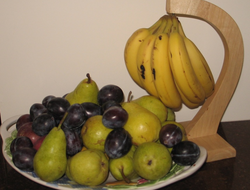Sugar awareness: How much sugar do you drink?
Published: February 04, 2021
You probably know that sodas and pops are loaded with sugar which is why you usually go for diet or zero calorie options.
But did you know that many “healthy” smoothies and juices may contain large amounts of added sugar?
Quick facts
Sugar sweetened beverages and health
- Consumption of sugar sweetened beverages has been associated with less healthy diets and weight gain by adding calories to your diet
- Sugar sweetened beverages contribute to obesity by increasing the amount of fructose you consume. Obesity is associated with increased risk of heart disease, some cancers, and type two diabetes.
- High fructose corn syrup (glucose-fructose (HFCS)) added to beverages appears to increase risk factors for heart disease by raising LDL cholesterol.
- High intakes of high fructose corn syrup (10-25% of calories) may increase your risk of fatal heart attack or stroke
- Low intakes of HFCS (10% of calories = 200 calories (2000 kcal/day food intake) have been associated with adverse health effects.
- Consuming more than one can (355 ml) per day of a sugar sweetened fruit juice, soda, or pop may increase your risk of high blood pressure just as consuming too much salt does.
- Sugar sweetened beverages may also be associated with gout, a painful joint disease which occurs when uric acid precipitates out of your blood and accumulates in your joints.
- High consumption of sugar sweetened beverages may also increase your risk of diabetes type 2 which is associated with a rise in blood levels of uric acid.
- Consumption of sugar sweetened soft drinks (as well as cakes, cookies, ice cream and candy) may increase your risk of developing periodontal disease.
- Periodontal disease appears to be associated with inflammation, heart disease and type 2 diabetes.
Smoothies, fruit juice and health
- Smoothies and fruit juice can contain large amounts of sugar and add significant calories to your diet.
- People are more likely to underestimate the amount of sugar in fruit beverages that are perceived as healthy than those that are considered less healthy and may not bother to read nutrition fact labels
- Commercially prepared specialty teas and coffees are also a significant source of added sugar.
- About 40% of the average person’s added sugar consumption comes from commercially prepared sweetened beverages such as sodas, pop, smoothies, fruit juices, tea, coffee, and hot chocolate.
- Aim for less than 6 tsp (or zero tsp) added sugar/day: level not heaped.
- Regularly consuming “healthy” smoothies and fruit juices may add up to 450 calories per day to your diet: 25% and 20% of the recommended total daily calorie intake for women and men respectively.
Link to the full article to learn more...

